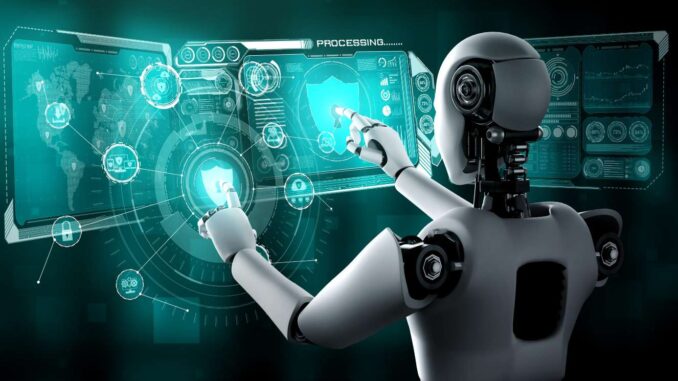
Artificial Intelligence (AI) has the potential to bring about a wide range of positive impacts across various sectors and aspects of society. Here are some notable benefits:
1. **Enhanced Efficiency**: AI can automate repetitive and time-consuming tasks, allowing businesses and individuals to allocate their time and resources more effectively. This can lead to increased productivity and faster turnaround times in various industries.









2. **Improved Decision-Making**: AI systems can analyze vast amounts of data far more quickly than humans. This capability aids in informed decision-making by identifying trends, making predictions, and providing insights that might not be obvious.
3. **Personalization**: In sectors like marketing, retail, and entertainment, AI can help tailor experiences to individual preferences. This personalization enhances user satisfaction and engagement, leading to better customer experiences.
4. **Healthcare Advancements**: AI is transforming healthcare through improved diagnostics, personalized treatment plans, and predictive analytics. AI-powered tools can assist in identifying diseases at earlier stages and managing patient care more effectively.
5. **Accessibility**: AI technologies can improve accessibility for individuals with disabilities. For example, speech recognition software can help those with mobility impairments, and AI-driven apps can provide real-time translation services for the hearing or visually impaired.
6. **Global Challenges Solutions**: AI has the potential to address significant global challenges, such as climate change and food security, by optimizing resource management, predicting environmental impacts, and enhancing agricultural practices.
7. **Safety Improvements**: In industries like manufacturing and transportation, AI can monitor systems for safety risks, predict equipment failures, and optimize workflows, leading to safer environments for workers and consumers alike.
8. **Education Enhancements**: AI-driven educational tools can offer personalized learning experiences, helping students learn at their own pace and according to their individual needs. This can lead to improved educational outcomes and accessibility.
9. **Research and Development**: AI accelerates research by analyzing complex data sets, identifying patterns, and automating experiments. This can lead to faster advancements in fields such as medicine, engineering, and materials science.
10. **Economic Growth**: By fostering innovation and creating new markets, AI can contribute to economic growth. The development and deployment of AI technologies can lead to the creation of new jobs and industries.
11. **Fraud Detection and Cybersecurity**: AI can enhance security measures through real-time monitoring and threat detection, helping to identify fraudulent activities and protect sensitive data from cyberattacks.
12. **Environmental Management**: AI can optimize energy usage, improve waste management, and support conservation efforts by processing data related to environmental conditions and resource consumption.
Overall, the positive impacts of AI are vast and varied, holding the potential to improve quality of life, drive economic growth, and create more sustainable practices in numerous fields. However, it is essential to consider ethical implications and ensure responsible development and deployment of AI technologies to maximize these benefits while minimizing risks.

Leave a Reply